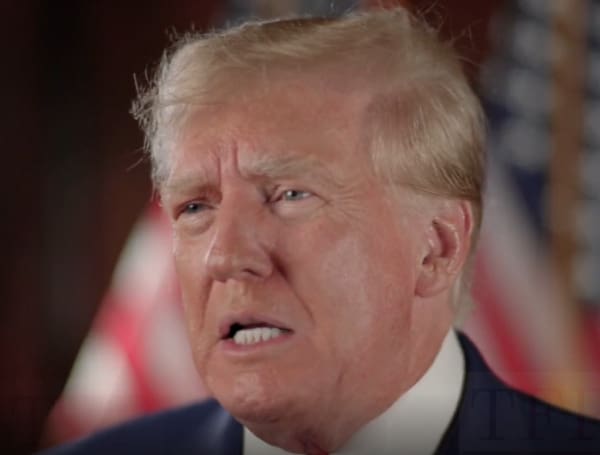President Donald J. Trump (TFP File Photo) One of the most influential watchdog publications within the journalism industry has confirmed what mos
One of the most influential watchdog publications within the journalism industry has confirmed what most conservatives already understood:
That the mainstream media did a hatchet job on former President Donald Trump by promoting the Russia collusion hoax.
The left-leaning Columbia Journalism Review recently published a four-part series of what it labeled “Russiagate.” It took 18 months to produce and is touted by the magazine as a “granular” and “encyclopedic” look at the mainstream media’s coverage of Trump in 2018, especially by The New York Times and The Washington Post, each of which won Pulitzer Prizes for their “deeply sourced, relentlessly reported” coverage of something that didn’t actually happen.
The bottom line: Trump was much more right than wrong when he labeled it “fake news.”
In the news: As Chinese Spy Balloon Hovers Over US, Trump Slams Biden For Going Soft On Beijing Spies
In the conclusion of his piece, the author, former Times reporter Jeff Gerth, noted that took on the job because he was “worried about journalism’s declining credibility and society’s increasing polarization,” trends that he believes are “intertwined.”
As examples of the media’s malfeasance, Gerth noted, “One traditional journalistic standard that wasn’t always followed in the Trump-Russia coverage is the need to report facts that run counter to the prevailing narrative.”
“In January 2018, for example, the New York Times ignored a publicly available document showing that the FBI’s lead investigator didn’t think, after ten months of inquiry into possible Trump-Russia ties, that there was much there. This omission disserved Times readers. The paper says its reporting was thorough and ‘in line with our editorial standards.’”
Along those lines, Gerth wrote, “At times, Trump seemed almost to be toying with the press, offering spontaneous answers to questions about Russia that seemed to point to darker narratives. When those storylines were authoritatively undercut, the follow-ups were downplayed or ignored.”
In the news: Trump Claims A Tearful Ron DeSantis Sought His Endorsement In 2018. “He Begged Me For An Endorsement”
Another issue with promoting the unsubstantiated narrative about Trump, Gerth wrote, “was the failure to seek and reflect comment from people who are the subject of serious criticism.”
Using the Times as an example, he shared, “In stories by the Times involving such disparate figures as Joseph Mifsud (the Maltese academic who supposedly started the whole FBI inquiry), Christopher Steele (the former British spy who authored the dossier), and Konstantin Kilimnik (the consultant cited by some as the best evidence of collusion between Russia and Trump), the paper’s reporters failed to include comment from the person being criticized” by them.
He also discussed the prevalent use of anonymous sources.
The media “turbocharged” that in the Trump era, Gerth wrote, with supposed insider information shared by “people (or person) familiar with” — a phrase the Times used more than 1,000 times in regard to Trump-Russia stories between October 2016 and January 2021 — as well as terms like “government official,” “intelligence official,” or “American official.”
Gerth related that this was really code for members of Congress who leaked cherry-picked information from secret briefings — most of which was intended to damage Trump.
In the news: VIDEO: Pentagon Says US Collected Valuable Intel Waiting To Shoot Down Chinese Spy Balloon
In his conclusion, Gerth also shared his frustration with the lack of transparency by the media in responding to his questions. “I reached out to more than sixty journalists; only about half responded. Of those who did, more than a dozen agreed to be interviewed on the record. However, not a single major news organization made available a newsroom leader to talk about their coverage.”
Independent journalist Glenn Greenwald, a liberal himself who regularly criticized the media for spreading false reporting about Trump and Russia, called Gerth’s account one of the “best comprehensive accounts yet of the pervasive lying and deep corruption that drove the media’s Russiagate hoax.”
Android Users, Click Here To Download The Free Press App And Never Miss A Story. Follow Us On Facebook Here Or Twitter Here.

